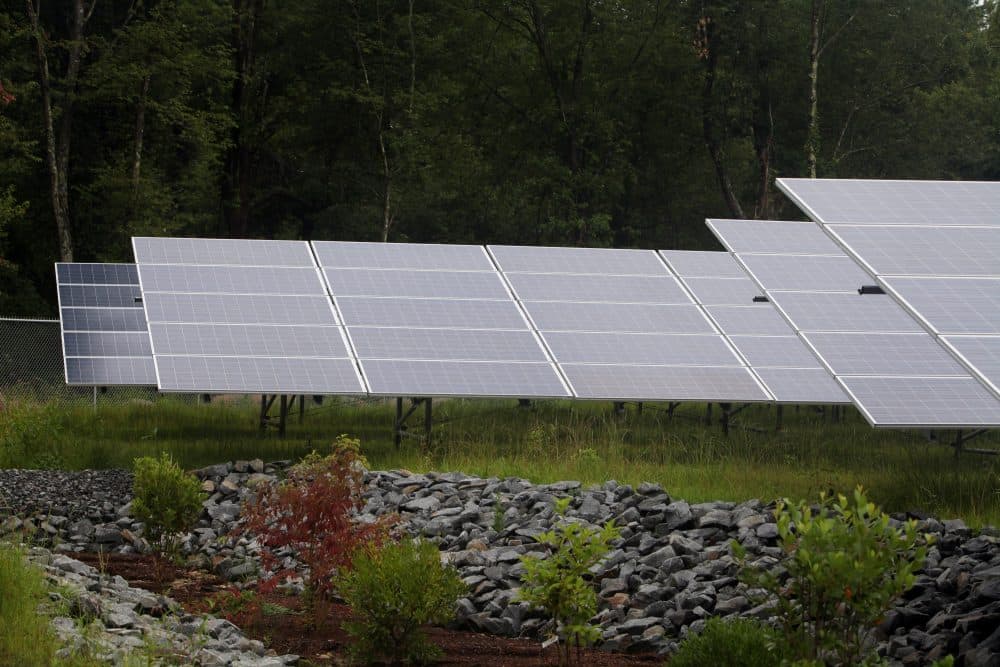Advertisement
Regional Greenhouse Gas Initiative Still Boosting Northeast Economies, Study Says

A new report says the Regional Greenhouse Gas Initiative has put $4 billion into Northeast economies since 2009.
The three-year study by the Analysis Group says those benefits have continued even as the program known as RGGI grew more ambitious.
The nearly decade-old carbon-trading scheme limits greenhouse gas emissions from fossil fuel-fired power plants in New England, New York, Maryland, and Delaware.
It makes plants pay for the carbon they do give off, and lets the states choose how to invest those proceeds into customer rebates, energy efficiency projects and renewable power.
Analysis Group senior advisor Sue Tierney helps study RGGI's economic impacts every three years.
Tierney’s latest study says fossil fuel plant revenues have decreased as RGGI’s limits on emissions tightened in recent years, driving prices up on greenhouse gas allowances.
But she says the program is still having a net economic benefit on consumers and their states.
That benefit totaled $1.4 billion in the latest study period between 2015 and 2017, and $4 billion altogether since RGGI began in 2009.
“I think this provides evidence of the fact that you can design a carbon-control program in ways that really are avoiding a drag on the economy and, in fact, actually helping to put more dollars in consumers’ pockets,” Tierney says.
The report is funded by several charities and environmental foundations, in an effort to show policy-makers whether the program is working.
The study also says RGGI reduced its participating states’ spending on outside fossil fuels by nearly $1.4 billion between 2015 and 2017.
And it says RGGI activity lopped a total of $99 million off customers’ electric bills, and $121 million off natural gas and heating oil bills.
Tierney says the analysis shows that efficiency projects give states the most “bang per buck” of any use for RGGI money, though rebates and renewable energy investments are valuable too.
“When you lower demand for electricity, you don't have to run the most expensive power plants as often and everybody's costs go down,” she says.
Each RGGI state manages its proceeds from the program differently.
Connecticut is debating diverting its RGGI money away from efficiency upgrades and into the state general fund.
Meanwhile, New Hampshire’s legislature is considering using all its RGGI money for energy efficiency, and doing away with rebates for residential customers.
This story is a production of the New England News Collaborative and was originally published by New Hampshire Public Radio.